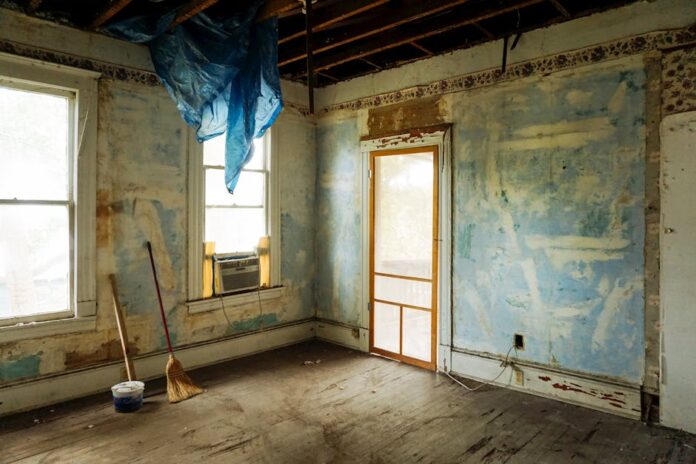Taking on a home renovation project in New Zealand is exciting, but it is crucial to understand when building consent is necessary. Most renovations, especially those involving major structural changes, will require a building consent from your local council. If you’re planning significant plumbing or electrical work, or making external modifications that alter the appearance of your home, consent is essential. However, not all renovations need official approval. For instance, cosmetic changes like painting and decorating usually do not require building consent. Despite this, all work must adhere to the strict standards of the Building Code to ensure safety and quality.
The Building Code is a set of standards and guidelines that all building work in New Zealand must follow, regardless of whether it needs building consent. This comprehensive code covers everything from structural stability to fire safety, hygiene, and energy efficiency. Ensuring your project complies with the Building Code guarantees that all renovation work is safe and up to the expected performance levels.
Key Regulations to Know
When renovating a home in New Zealand, certain regulations carry significant importance. The Building Act 2004 plays a pivotal role as it sets out all the rules concerning the construction, alteration, demolition, and maintenance of buildings. It ensures safety, health, and resource efficiency in New Zealand’s building and construction sector, thereby safeguarding homeowners and the environment alike.
The Building Code, a part of the Building Act, focuses primarily on performance standards. These standards are fundamental, illustrating that even work exempt from building consent must meet these stringent requirements. For projects that could potentially impact the environment or infringe on local planning guidelines, the Resource Management Act comes into play. This act ensures that any renovation or building work aligns with broader environmental and community planning concerns.
Responsibilities of Homeowners
As a homeowner, you have a range of responsibilities that you must address during a renovation project. You are directly responsible for ensuring all the work complies with relevant regulations, even if you hire professionals to carry out the project. This means applying for building consent, submitting all necessary documents and information, and notifying the council of any project changes. Once the renovation is complete, it’s essential to apply for a Code Compliance Certificate (CCC) to confirm that the work meets all legal standards.
Failure to adhere to these responsibilities and regulations can lead to significant consequences, including fines and penalties from the council. Moreover, non-compliance can lead to potential safety risks and issues if the work performed is found lacking against the building standards set in place by the Building Code and other regulations. Understanding these obligations is crucial for a smooth and successful renovation project.
Navigating the Application Process
Embarking on a renovation project can be complex, and understanding the building consent process is crucial. It’s advisable to consult with your local council early in the planning stage to clarify specific requirements unique to your project. Councils can provide invaluable insights and regulations that you might need to follow.
Hiring an architect or designer can significantly streamline the consent application process and ensure compliance with all necessary standards. They can help with drawing up plans that meet regulatory requirements and advise on materials and techniques that will comply with the Building Code. For more extensive, complex projects, the involvement of a project manager can be enormously beneficial. They coordinate all aspects of the renovation, ensuring each phase aligns perfectly with legal requirements and project goals.
When choosing a renovation company, diligence is essential. Research their credentials, examine previous projects, and perhaps meet with past clients. Partnering with a professional, reputable company can make a significant difference in meeting all project requirements smoothly and efficiently. For additional tips and resources, visit Startup Journal to stay updated on the latest insights and advice.
Recent Changes and Trends in Regulations
The landscape of building regulations in New Zealand is always evolving. Notably, there were significant updates to the Building Code in 2021, focused on enhancing energy efficiency and improving insulation standards. These changes reflect a growing trend towards sustainability, eco-friendliness, and energy-efficient building practices in home renovations.
This increasing emphasis on sustainable practices means homeowners must consider these elements during the planning stages of their renovations. Sustainable building practices not only improve the environmental impact of your home but can also lead to long-term cost savings through greater energy efficiency. It’s essential to understand how these updates and trends might affect your renovation process and requirements.
Stricter regulations often mean the consent process is more complex and potentially more expensive. However, these measures are in place to ensure the safety, durability, and sustainability of building practices across the country. Recognizing these updates as an opportunity to improve your home’s performance can turn a regulatory challenge into a beneficial upgrade.
Practical Advice for Homeowners
Approaching your renovation with careful planning is paramount. Budget appropriately, accounting for consent costs and potential delays that might occur during the process. Delays can be frustrating but are part of ensuring that work meets all building standards and codes.
As a homeowner, understanding your rights and obligations throughout the renovation process can provide peace of mind and clarity. Consider employing licensed building practitioners for restricted types of work, as their expertise ensures compliance and quality. Keeping detailed records of all work done, communicating with the council, and securing proper inspections are essential practices during any renovation.
Ultimately, knowledge and preparation are your best allies. By thoroughly understanding the regulations and requirements and engaging with qualified professionals, you can navigate the renovation process smoothly, making your dreams of a renovated home a reality. Бy staying informed and proactive, you won’t just meet New Zealand’s regulatory framework; you’ll exceed it, ensuring your home renovation is successful, compliant, and enhances the value and comfort of your property.
